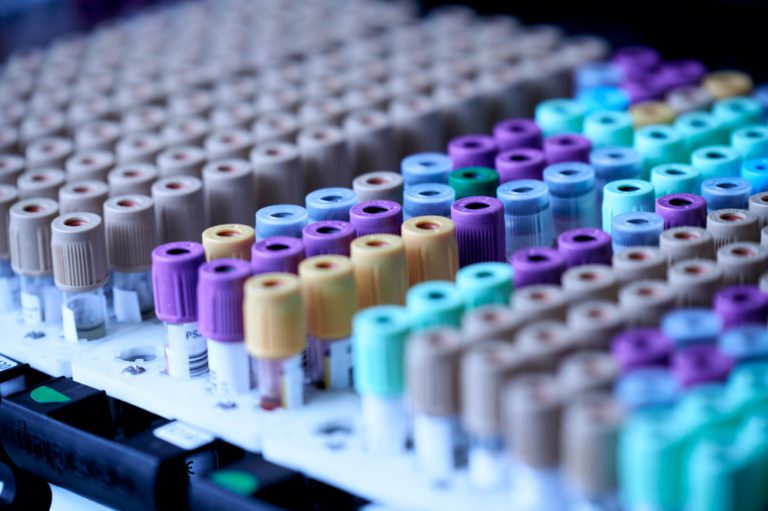Antibody testing is a reliable way to learn about infections and diagnose certain illnesses in people. Most antibody tests involve taking a sample of blood, then testing the sample for specific markers. When you take an antibody test, you and your doctor are learning about your immune system function. These results may pinpoint previous infections, or may diagnose current infections.
What are antibodies?
Antibodies are unique proteins that your immune system uses to fend off “foreign” invaders, also known as antigens in your body. These antigens can include viruses, bacteria, and other harmful microbes. Your immune system creates identifiable antibodies specific to eliminating these dangers. In the case of COVID-19, test results that show antibodies indicate the patient was previously infected with COVID-19.
When is antibody testing used?
You may have heard about antibody testing in relation to COVID-19. It is being used to learn more about the behavior of the virus. By studying patients who have had COVID-19, researchers can learn more about immunity and transmission. Aside from COVID-19 specific testing, other types of antibody tests are used to diagnose and give information on a number of viruses, diseases, and other health threats including:
- Amebiasis (a disease caused by a parasite called Entamoeba histolytica)
- Brucellosis (a bacterial infection caused by the bacteria Brucella)
- Different types of fungal infections
- HIV
- Measles
- Rubella
What are the steps of getting an antibody test?
An antibody test starts by collecting your blood in the same way as for a routine blood test. You can read all about the steps and procedure of a routine blood test here. Once your blood draw is complete, your sample gets tested by a lab to check for the specific the antibodies in question. At Your Health Lab, results for the COVID-19 specific test are available within 24-48 hours of your blood sample arriving at our lab.
What happens when you test positive for antibodies?
Your doctor or healthcare provider may prescribe follow up treatment or steps for you to take. It is important to know that the presence of antibodies doesn’t necessarily mean you are immune to an illness. You may need further medical treatment. Certain antibody tests diagnose active infections, thus requiring further treatment. We must approach COVID-19 cautiously. In the future, it will hopefully become clear what level and length of immunity is afforded to people who have COVID-19 antibodies present.
Can an antibody test diagnose an active case of COVID-19?
No. Unlike certain other antibody tests, the COVID-19 antibody does not diagnose active infection. The antibody test is only to see if antibodies are present in the body from a previous infection. Someone could be actively infected, and have no antibodies. This can happen in COVID-19 patients whose immune systems have not yet produced the proper antibodies. In a case like this, there could be a potential false negative test result. The test for active COVID-19 infection is the PCR test. A PCR test involves collecting a nasal or oral swab and detects the actual virus, not the antibodies.
When can you get a COVID-19 antibody test?
In the case of the COVID-19 antibody test, it can be used once an individual has fully recovered from their illness. Research indicates that people need 2-3 weeks following infection to build up enough antibodies to show up on a test. If a patient tests positive for COVID-19 specific antibodies, it indicates they have had the virus. This can be helpful when trying to learn if an infection was COVID-19 and not another similar illness, such as the flu. After a positive COVID-19 antibody test, an individual may then be at least partially immune to the virus for some amount of time. We need more testing, research, and observation to know how long and to what degree COVID-19 immunity lasts.
How long does it take to produce antibodies to fight COVID-19?
Research indicates that those previously infected by COVID-19 develop antibodies in the days and weeks following infection. The majority of people develop antibodies only after the first week has passed following the onset of symptoms. Different people will develop antibodies at different rates, and the strength of a person’s immune system response can depend on certain factors. Some of these factors include immune health (or the use of immune suppressing medications), the age and general health of the person, and the severity of the infection.
Can I go back to regular life if I have COVID-19 antibodies?
Not necessarily. If your COVID-19 antibody test comes back positive, the best indication is that you may be immune or partially immune for an unknown amount of time. It is still unknown if people with COVID-19 antibodies pass on the virus to others.
Researchers are gathering and analyzing information about COVID-19. As there is a lack of solid scientific evidence about COVID-19 immunity, always follow the guidelines from your doctor. This is the best way to protect yourself and your community. Even if you have tested positive for COVID-19 antibodies, you should continue as before. Practical steps for stopping the spread of COVID-19 include:
- wearing a mask in public
- maintaining physical distancing
- frequently washing or sanitizing your hands
- avoiding large gatherings
- following all other recommendations applicable to your area.
Get the test
The spread of COVID-19 slows through frequent medical testing and monitoring. This includes antibody, PCR, and surveillance testing. Your Health Lab offers each of these tests, helping individuals and institutions monitor and slow the spread of the virus. Check out our offerings and learn all about our COVID-19 testing here.
